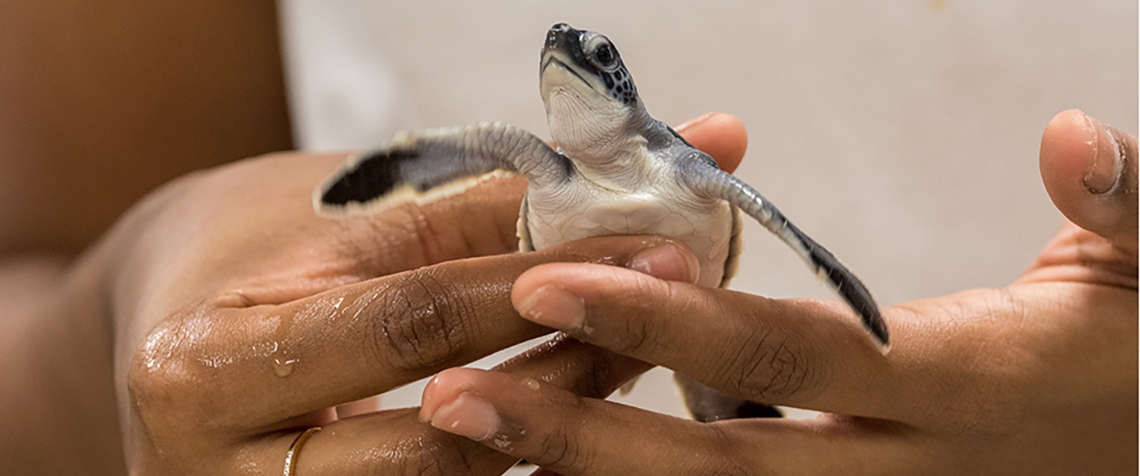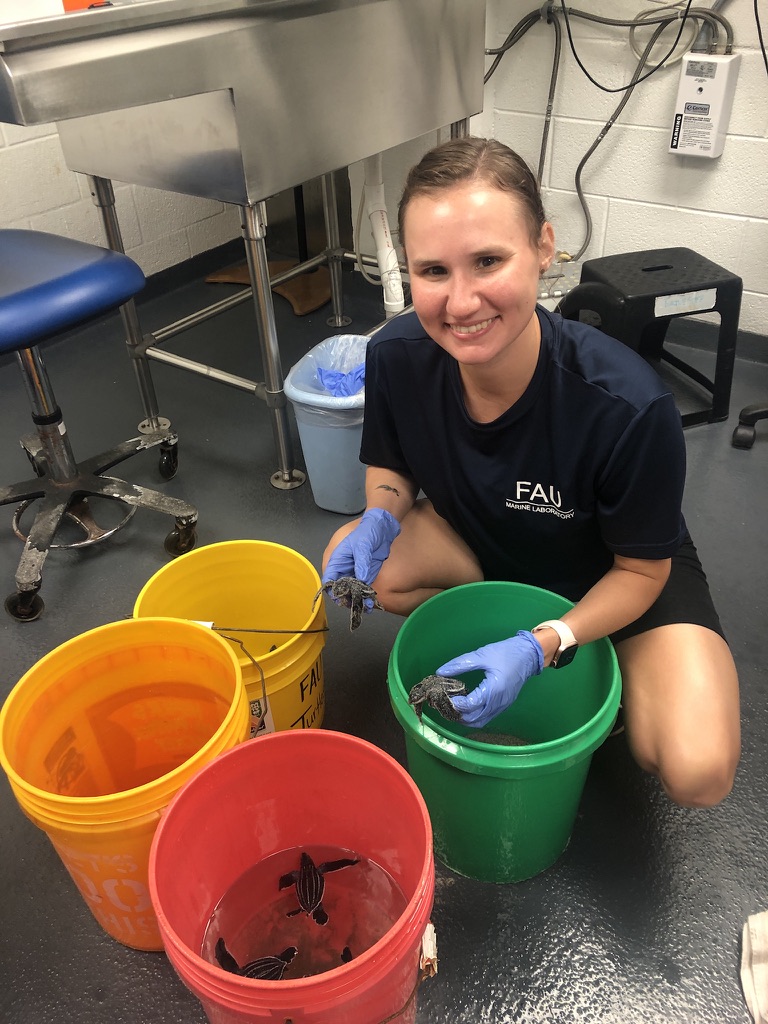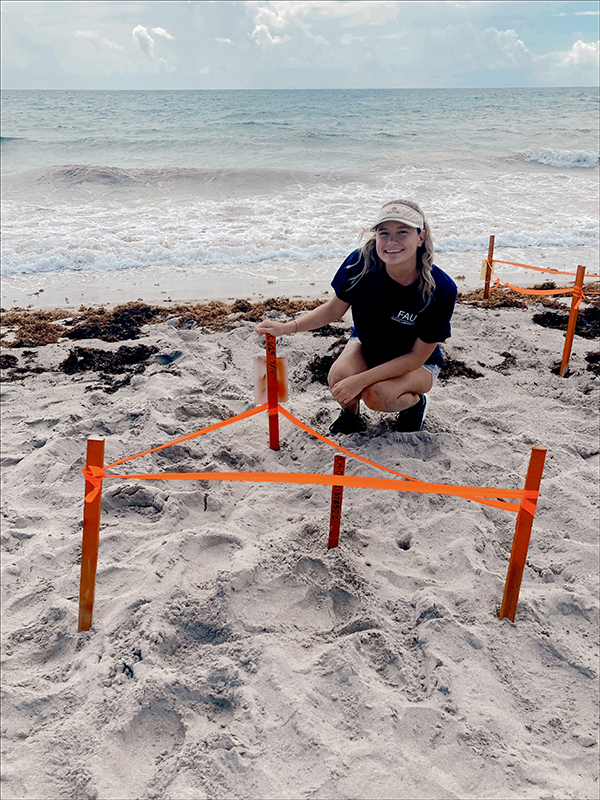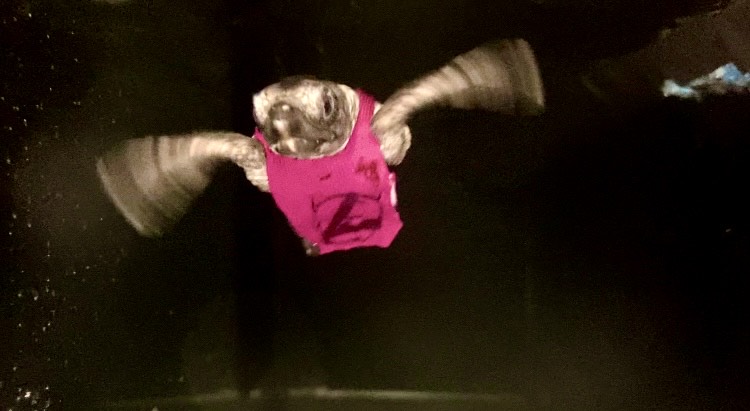
Author: Miguel Serrato
Date: April 25, 2023

As we prepare to bring in the first hatchlings of the 2023 season, here we wrap up our series on what we learned in 2022. Below we highlight the science of graduate students working in the FAU Marine Lab.
Visiting researcher, Ph.D. candidate, and licensed veterinarian, Dr. Sam Kuschke is studying the effects of temperature on turtle health. Her findings show that turtles emerging from warmer nests are different from hatchlings that incubated at less extreme temperatures. The “hot nest” hatchlings have altered blood parameters and skin microbiota. For an animal that spends its first 1-2 days swimming non-stop right out of the nest, abnormalities could decrease survival by adding physiological stress, leaving them more susceptible to disease, predation, and other threats. Therefore, it is important to document what is normal and what is not to help scientists understand the environmental threats and challenges that these turtles face.

In addition to sex ratios and overall health, incubation temperature influences the buoyancy and swim performance of loggerhead turtles. When you spend your entire life swimming in the ocean and coming up to the surface to catch your breath, being an efficient swimmer with good buoyancy control is important. Lexi Moyle, a graduate student in the FAU Marine Lab, found that cooler nests produced larger hatchlings than warmer nests. These larger turtles were also more buoyant and swam faster than the hatchlings that came from warmer nests. To analyze these results, she compared residual yolk absorption, body morphology, energy expenditure, and stroke rate vs. force production. These findings may have implications for sea turtle conservation. Cooler incubation temperatures may have positive effects on the survival of loggerhead turtles. Buoyancy determines how much energy is necessary to remain at the surface to breathe. By investigating this connection, researchers can gain a better understanding of key physiological mechanisms that sea turtles use to survive in their watery world.

We look forward to building on the foundation of these studies as our 2023 season gets underway this summer!